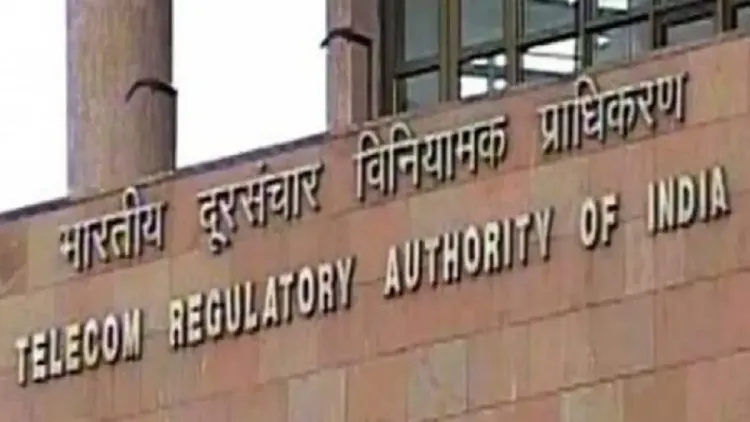TRAI's New Guidelines to Enhance National Numbering Plan and Telecom Services

Synopsis
Key Takeaways
- New recommendations for national numbering plan.
- Universal accessibility for telecom services.
- No extra costs for numbering resources.
- Fixed-line dialing requires a prefix of '0'.
- Implementation expected within six months.
New Delhi, Feb 6 (NationPress) The government announced new recommendations on revising the national numbering plan aimed at ensuring universal access and dependable telecommunications services for consumers, businesses, and industries.
Telecommunication Identifiers (TIs) serve the purpose of uniquely identifying a telecom user, service, network elements, equipment, or an authorized entity.
In the current interconnected digital environment, where billions of devices and users must be addressed, the adequate availability and effective utilization of numbering resources (TIs) are crucial, as stated by the Telecom Regulatory Authority of India (TRAI).
After considering feedback from stakeholders during the consultation phase, the telecom authority has finalized the recommendations on the ‘Revision of National Numbering Plan’.
At this point, no additional fees or financial disincentives for numbering resources have been suggested.
The recommendations state, “The Department of Telecommunications (DoT) will oversee the yearly usage of numbering resources allocated to Telecom Service Providers (TSPs), and may revoke unutilized numbering resources if necessary.”
To alleviate numbering resource issues in fixed-line services, users will need to dial all fixed-line to fixed-line calls using a prefix of '0', followed by the STD code and the subscriber number.
“The dialing pattern for fixed-to-mobile, mobile-to-fixed, and mobile-to-mobile calls will stay the same. Existing subscriber numbers will remain unchanged. The new numbering scheme will be implemented within a period of six months,” as per TRAI.
After the implementation of the License Service Area (LSA)-based 10-digit closed numbering scheme, a 10-digit fixed-line numbering scheme utilizing a Fixed-line Location Routing Number (FLRN) code must be adopted within a maximum of five years, ensuring nationwide availability of LSA-based numbering resources.
DoT will expedite the implementation of TRAI's recommendations on the ‘Introduction of Calling Name Presentation (CNAP) service in the Indian Telecommunication Network’, including the swift rollout of CNAP supplementary services for all SIP (Session Initiation Protocol) and PRI (Primary Rate Interface) calls terminating on mobile networks.
To prevent CLI (call line identification) spoofing and tampering, the CLI Authentication framework and Distributed Certification Authority framework should be established in line with ITU recommendations.
“No mobile or fixed-line connections will be deactivated by the TSPs until 90 days of non-usage have elapsed. All mobile and fixed-line connections that remain inactive due to non-usage will be mandatorily deactivated by the TSPs after 365 days post the 90-day non-usage period,” stated the TRAI in its recommendations.









